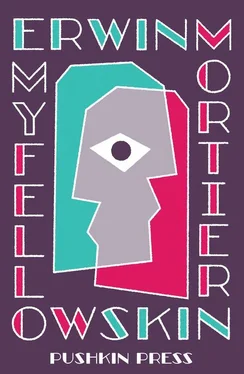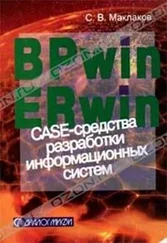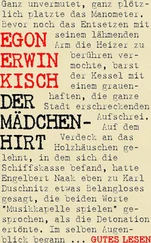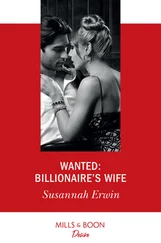Erwin Mortier - My Fellow Skin
Здесь есть возможность читать онлайн «Erwin Mortier - My Fellow Skin» весь текст электронной книги совершенно бесплатно (целиком полную версию без сокращений). В некоторых случаях можно слушать аудио, скачать через торрент в формате fb2 и присутствует краткое содержание. Год выпуска: 2015, Издательство: Pushkin Press, Жанр: Современная проза, на английском языке. Описание произведения, (предисловие) а так же отзывы посетителей доступны на портале библиотеки ЛибКат.
- Название:My Fellow Skin
- Автор:
- Издательство:Pushkin Press
- Жанр:
- Год:2015
- ISBN:нет данных
- Рейтинг книги:4 / 5. Голосов: 1
-
Избранное:Добавить в избранное
- Отзывы:
-
Ваша оценка:
- 80
- 1
- 2
- 3
- 4
- 5
My Fellow Skin: краткое содержание, описание и аннотация
Предлагаем к чтению аннотацию, описание, краткое содержание или предисловие (зависит от того, что написал сам автор книги «My Fellow Skin»). Если вы не нашли необходимую информацию о книге — напишите в комментариях, мы постараемся отыскать её.
My Fellow Skin — читать онлайн бесплатно полную книгу (весь текст) целиком
Ниже представлен текст книги, разбитый по страницам. Система сохранения места последней прочитанной страницы, позволяет с удобством читать онлайн бесплатно книгу «My Fellow Skin», без необходимости каждый раз заново искать на чём Вы остановились. Поставьте закладку, и сможете в любой момент перейти на страницу, на которой закончили чтение.
Интервал:
Закладка:
“You should really start tying your own laces, you know,” my mother said, with a rueful sigh. She kneeled down at my feet.
“You will take care, won’t you?” she said with a catch in her throat. “Just you stick close to Roland, mind.”
I was glad I couldn’t see her fighting back her tears.
*
Roland took the lead as we rode over the dyke, both with our satchels on our backs. It was a pale morning, neither sunny nor cloudy. Swathes of mist drifted over the water and further on, where the canal curved and widened out, the houses and trees were veiled in grey. We cycled alongside the warehouses with fork-lift trucks riding in and out, past the flour mill where strange funnels suspended from cranes sucked up the cargo of ships moored alongside in a cloud of fine yellow dust. On some days I would catch sight of my father at work there. He’d look up if I rang my bell, but today he was nowhere to be seen.
All the way up to the railway crossing the world was familiar to me. I had explored the sandy lanes, knew where everyone lived and which guard dogs I had to beware of, and could locate the bomb craters that had turned into ponds alive with the whirr of dragonflies making rainbows with their wings. The stretch of open countryside came to an end in a thickly canopied wood.
There, under the trees, it smelled of damp earth, of fermentation and mould. The first toadstools were shooting up in the verges. Peering through the gaps in the rhododendron bushes, I could make out the castle at the end of the drive. That was as far as I had ever ventured on my bicycle, before racing back the way I came for fear of getting lost in the web of lanes.
The park was deserted. Peacocks strutted about on the lawn, dragging their tails behind them. Magpies chattered in the depths of the wood. Pigeons circled around the roofs of the farmhouses at the far end.
“Can you keep up?” Roland panted.
“No problem,” I cried, although my calves were aching and the saddle was beginning to hurt my thighs.
The trees thinned out. Through the brushwood a pool sparkled, with little islands rising like ruined fortresses above the mist and fringes of reed. We came upon an open space. There were fields, some of which had been parcelled into plots where villas were under construction. Still further on the road made a sharp turn, and we were riding under the trees again, but uphill now. Roland stood up on the pedals. I broke out in a sweat.
At the top we found ourselves in a busy settlement of houses, with bicycles pouring on to the road from all sides.
“Hey Roland, have you moved house or something?” someone called in passing.
“Hi,” Roland called back, without bothering to look who it was.
I kept my eyes fixed ahead, anxious not to get tangled with the other bikes on the road. By the time we reached the high street the stream of cyclists had swollen to a swarm, a plague of locusts surging past the houses, crossing the market square with the bandstand and sliding into a narrow side street.
A few hundred metres on, surrounded by wasteland where stretches of newly constructed roads stopped abruptly as though the houses they led to had yet to rise from the ground, stood our school.
I had imagined crenellations, ramparts and walls overgrown with ivy or woodbine; that I would be entering a world of study and respectful silence, with deeply shaded galleries and turrets like minarets, and a drawbridge; but what I saw was more like a stack of shoeboxes, austere and white, with cold steel window frames. One of the boxes had a low gateway, into which plunged the horde of bicycles.
I had trouble keeping up with Roland. In the end I lost sight of him and simply followed the others into a gloomy space with concrete pillars and bicycle racks.
Boys got down from their saddles, exchanging noisy greetings. I threaded my way through them cautiously, until my ear was pulled hard. A man with a face like a lump of dough barked at me that cycling was not allowed past the gateway. “Got that?”
I parked my bike in one of the racks, feeling weak at the knees. I spotted Roland in the mêlée spilling out over the bleak, paved courtyard, but when I went up to him he didn’t seem keen to have me around.
“You’re supposed to stay on that side,” he drawled, pointing to a white line crossing the school yard from end to end, dividing it exactly in two.
On the far side gangly youths bounced basketballs on the pavement. The near side, reserved for juniors, was occupied by lads lugging outsized satchels, circling each other warily, breaking ranks again and picking at their pimples.
I saw Roland go up to a group of boys who greeted him warmly. Punches were exchanged, playful blows were dodged. Someone held him fast, made him bend over and swiped off his cap.
I retraced my steps. The chap with the doughy face was walking back and forth along the white line like a border guard, and kept glancing in my direction.
Of all the things I had seen in my father’s photographs, only the monastery with its frail cupolas and pretty bay windows was still standing. Wedged in among a couple of the shoeboxes, the old building seemed to tremble while it was being slowly squashed.
There were tufts of grass growing on the brick steps where my father had once raised the school flag, and the conifers must have been chopped down ages ago. In the middle of a small, fussy flower bed stood a weather-beaten Christ spreading his arms, one of which had been amputated at the elbow, either due to a mishap or to mischief.
There was no horizon anywhere. No way out. Not even when I looked up. The sky was a rectangular hole with a lid of clouds.
This was St Joseph’s Institute for Hopeless Education, where it snowed chalk-dust, the sterile pollen of learning, day in day out. Where all the classrooms were equipped with centrally driven clocks swotting the minutes away like so many flies. Where tired kaffir lilies in pots on the window sills struggled to produce the bloom that might well be their last.
I picked my way cautiously across the school yard, avoiding throngs of arguing boys, and positioned myself against the wall at the far end. A stale, sour-sweet smell from the stairs leading up to the classrooms wafted towards me. It was as though everything had been treated with a secret substance, not for the purpose of banishing the fluffy detritus from hundreds of jumpers, the smell of farts, belches, badly brushed teeth, the stench of countless armpits, but on the contrary to preserve them and mix them all up in a potent, all-enveloping atmosphere: that of school. More vividly than any punishment it was the institutional fug that brought home to me that school had reduced me to a cipher, one of the herd. Part sheep ready for slaughter, part insect; a creature with spindly, puny bones, rising saps and a nervous system like an over-twigged fruit tree in dire need of pruning.
*
A bell shrilled out. The older boys straggled into the building for class. The chap with the dough-face called out, “New boys assemble in front of the monastery.”
Someone had thought to place a microphone on the terrace. Two of the bay windows were wide open and had loudspeakers on the sills.
I hung around at the back of the group. A boy with long fair hair said, “Hello. I’m Willem,” and extended his hand.
“I’m Anton,” I said, somewhat taken aback by his friendliness.
“Do you live in Ruizele?”
I shook my head. “No, in Stuyvenberghe. It’s not far from here.”
“I live in the woods near here,” he said. “My father’s an architect,” he added, as if the two were connected.
He spoke in a soft, well-mannered kind of way, which I found just as pleasing as his hair. But the others thought he sounded funny: they glanced at him and sniggered.
Читать дальшеИнтервал:
Закладка:
Похожие книги на «My Fellow Skin»
Представляем Вашему вниманию похожие книги на «My Fellow Skin» списком для выбора. Мы отобрали схожую по названию и смыслу литературу в надежде предоставить читателям больше вариантов отыскать новые, интересные, ещё непрочитанные произведения.
Обсуждение, отзывы о книге «My Fellow Skin» и просто собственные мнения читателей. Оставьте ваши комментарии, напишите, что Вы думаете о произведении, его смысле или главных героях. Укажите что конкретно понравилось, а что нет, и почему Вы так считаете.












